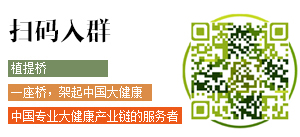Asian plant extract adds novelty to European foods
时间:2007-07-22
浏览数:(1575)
关键词:
Extracts of ginseng, a plant best-known in Asia, are increasingly appearing in European food products, appealing to consumers interested in wellbeing.
Yet although the plant has been available in supplements and OTC medicines for several years, offering natural health benefits, most food makers are not making health claims on their products.
Most consumers already associate the plant with mental stimulation, says Michael Bloeser, sales manager at Germany-based Plantextrakt, one of the leading suppliers of ginseng extracts.
“In general people don’t want to make claims unless there is a big study behind them,” he told NutraIngredients.com.
“People know these herbals have a certain effect, it is not always necessary to make a claim.”
Furthermore, food makers also tend to use much lower dosages than those found in supplements in order to avoid regulator scrutiny by formulating with plants known to have medicinal action.
Joerg Gruenwald, a herbals consultant from Phytopharm, says that the low dosages in extracts are unlikely to offer any of the health benefits seen in clinical trials.
Yet Plantextrakt says it has evidence to the contrary. In a double-blind, randomized, placebo-controlled cross-over study carried out last year, a beverage containing its ginseng and gingko extracts resulted in “a state of heightened attention and/or cognitive readiness and an increased sense of wellbeing” in a small number of test subjects.
“We wanted to find out the real properties under food conditions,” said Bloeser.
This new evidence is likely to boost use of the extracts even further.
Mintel’s Global New Products Database shows that there were more than 60 new food and drinks products launched across western Europe in the last 12 months containing ginseng.
And Bloeser says ginseng extracts are growing at around 15 per cent.
This may be low compared to the 50 per cent growth seen in Asia, where the plant is so well-established that it is increasingly used in mainstream foods by leading brands.
Nestle's ready-to-drink coffee with added milk and ginseng, available in south-east Asia, is a good example of this.
"I'm not convinced ginseng will be one of those big products but it has a good future in niche products in Europe," Bloeser added.
Cognis has also spotted the growing demand, adding ginseng extracts to its portfolio in recent months as one of a range of 'trendy' plants.
Yet although the plant has been available in supplements and OTC medicines for several years, offering natural health benefits, most food makers are not making health claims on their products.
Most consumers already associate the plant with mental stimulation, says Michael Bloeser, sales manager at Germany-based Plantextrakt, one of the leading suppliers of ginseng extracts.
“In general people don’t want to make claims unless there is a big study behind them,” he told NutraIngredients.com.
“People know these herbals have a certain effect, it is not always necessary to make a claim.”
Furthermore, food makers also tend to use much lower dosages than those found in supplements in order to avoid regulator scrutiny by formulating with plants known to have medicinal action.
Joerg Gruenwald, a herbals consultant from Phytopharm, says that the low dosages in extracts are unlikely to offer any of the health benefits seen in clinical trials.
Yet Plantextrakt says it has evidence to the contrary. In a double-blind, randomized, placebo-controlled cross-over study carried out last year, a beverage containing its ginseng and gingko extracts resulted in “a state of heightened attention and/or cognitive readiness and an increased sense of wellbeing” in a small number of test subjects.
“We wanted to find out the real properties under food conditions,” said Bloeser.
This new evidence is likely to boost use of the extracts even further.
Mintel’s Global New Products Database shows that there were more than 60 new food and drinks products launched across western Europe in the last 12 months containing ginseng.
And Bloeser says ginseng extracts are growing at around 15 per cent.
This may be low compared to the 50 per cent growth seen in Asia, where the plant is so well-established that it is increasingly used in mainstream foods by leading brands.
Nestle's ready-to-drink coffee with added milk and ginseng, available in south-east Asia, is a good example of this.
"I'm not convinced ginseng will be one of those big products but it has a good future in niche products in Europe," Bloeser added.
Cognis has also spotted the growing demand, adding ginseng extracts to its portfolio in recent months as one of a range of 'trendy' plants.
最新文章
- 营养健康全产业链展示汇聚!10月AAES2022等你闪耀深圳
- 媒体合作推文|8大奖项结果,150+创新品牌共同见证,第四届iSEE全球食品创新奖重磅揭晓!
- 【全新起航】AAES2022与时代共生——活下来,赢未来!
- FFNS2022倒计时15天!伊利、福建亲亲、无限极、和黄健宝确认参会,最新日程来啦
- 益生菌细分领域的黄金时代,SYNFORU®为你打造从头到脚360度的呵护
- 【思考·洞察】六月寄语:说说产业里“陆地粮”和“海洋粮”的认知差
- 精密发酵技术,植物肉市场的关键“突破”
- 植提桥
- 最新!FFNS2022延期至6月30日举办,品牌商免费参会,先到先得!
- 数据报告,Z世代对肉类替代品兴趣高,植物基的机会在冷冻、零食等类别



